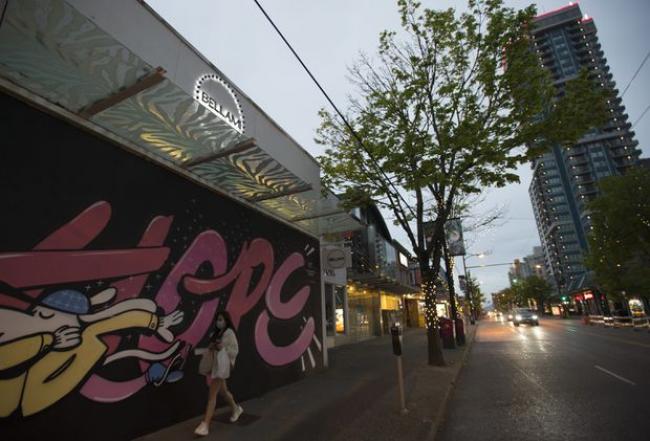Articles Menu

Special to The Globe and Mail
November 2, 2020
Vancouver’s climate-emergency response plan relies too much on new fees for average residents and on expensive regulation for buildings, says a public policy professor who is a member of provincial and national groups working on solutions to climate change.
Because Vancouver is trying to go it alone on reducing carbon emissions instead of focusing on regional or provincial strategies, it runs the risk of damaging local businesses and encouraging both them and residents to leave, says Nancy Olewiler, director of Simon Fraser University’s public policy school.
“They’re going down a regulatory route, which is going to be very expensive,” she said. “I just think they came out with too many sticks.”
City of Vancouver staff rolled out the response plan last week after councillors asked them last year to find ways to drive down the city’s carbon emissions at a faster rate than what’s happening currently. The staff’s 19 recommendations include a toll charge around Vancouver’s business core on the downtown peninsula and Broadway, mandatory parking permits for every resident car on the street, requirements for homeowners and businesses to gradually upgrade their buildings to make them more energy efficient, and incentives for electric vehicles.
In the 371-page report, the word “fee” is mentioned 160 times and “charge” 86 times.
Prof. Olewiler, a former board chair for the regional transportation agency TransLink, sits on B.C.'s government-appointed Climate Solutions Council, a group that works on recommendations for the province about the best measures to take to reduce carbon emissions. She also chairs the mitigation panel of the Canadian Institute for Climate Choices, an independent national organization focused on fostering “independent and expert-driven analysis to help Canada move toward clean growth.”
She said one better approach would be to work toward a provincial strategy, so that strict new rules in Vancouver wouldn’t just result in “leakage” of residents and businesses to other communities.
As well, she said, rather than requiring every homeowner and business in the city to pay for individual energy audits and upgrades on their property, which the plan proposes, planners should focus on increasing the price people pay for carbon emissions – a non-regulatory approach that is much less expensive to set up and monitor.
Those supporting more aggressive action on carbon pollution are endorsing the plan, saying Vancouver has to do more than it is now.
Green Party councillor Pete Fry, who joined a group of teenagers demonstrating at City Hall Friday in favour of the plan, said the idea is to set goals and get started on a work schedule. Nothing will happen tomorrow.
“It’s setting an intention and that is an appropriate position. People are freaked out by the mobility pricing [fees related to everyday transportation] … but what we need to be afraid of is climate change.”
Representatives from the Greater Vancouver Board of Trade, the Downtown Vancouver Business Improvement Association and the BC Restaurant and Foodservices Association expressed dismay, saying the plan proposes many new costs for city businesses at a time when they are struggling to survive the effects of the COVID-19 pandemic.
“We came out in favour of the 2018 proposal for regional mobility pricing,” Board of Trade president Bridgitte Anderson said. “But we have some significant concerns about this.”
In a letter to council, Ms. Anderson wrote that, although the board supported many other parts of the plan, putting a toll around the city’s business core would be devastating.
“In recent months, the central business district has been described as a ghost town with overall office occupancy at 10 to 40 per cent, depending on estimates. A city mobility pricing scheme would be punitive to businesses operating in the city centre and would exacerbate the burden they are already facing,” says her letter.
Charles Gauthier, executive director of the 7,000-member association representing downtown businesses, said the plan was released at the worst possible time and with no economic analysis or details, which will create a lot of uncertainty.
“Vancouver going it alone is a recipe for destroying everything we’ve worked on the last 30 or 40 years to make a livable downtown.”
Ian Tostenson, CEO of the organization that represents restaurants and food services, said it’s another blow to a sector that’s already struggling with the pandemic.
[Top photo: A woman wearing a protective face mask walks past the boarded up shops along Robson Street in downtown Vancouver on May 4, 2020.JONATHAN HAYWARD/THE CANADIAN PRESS]